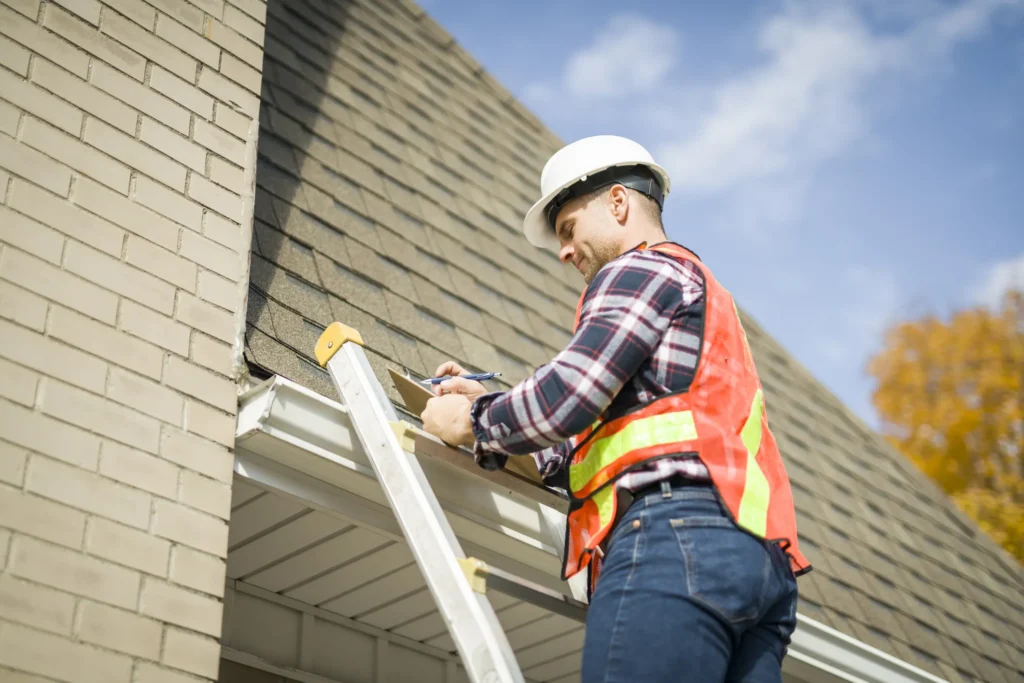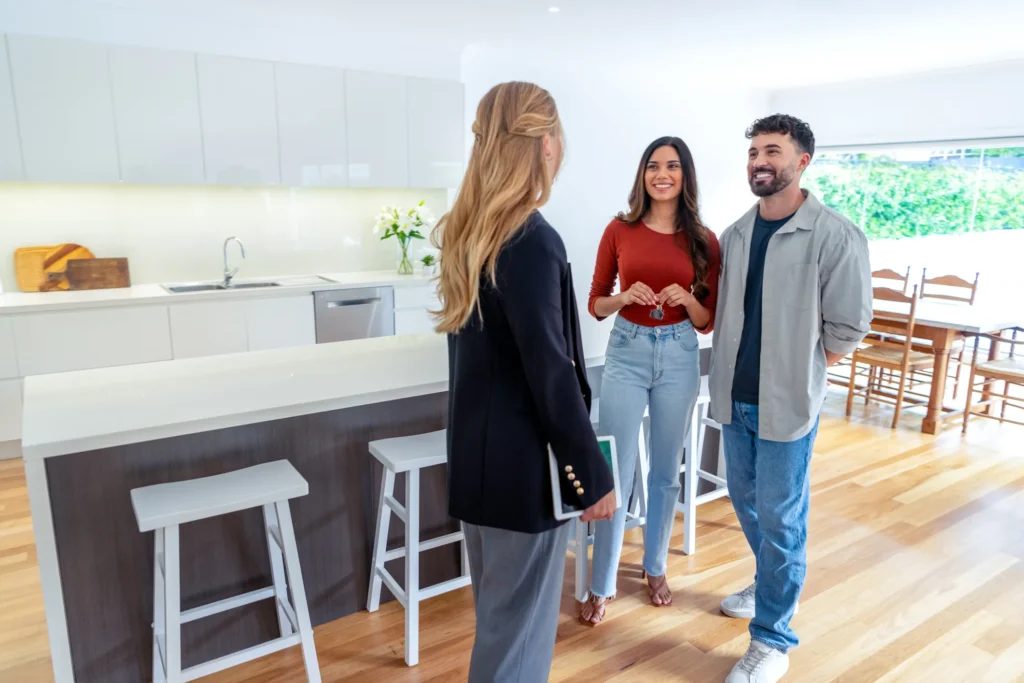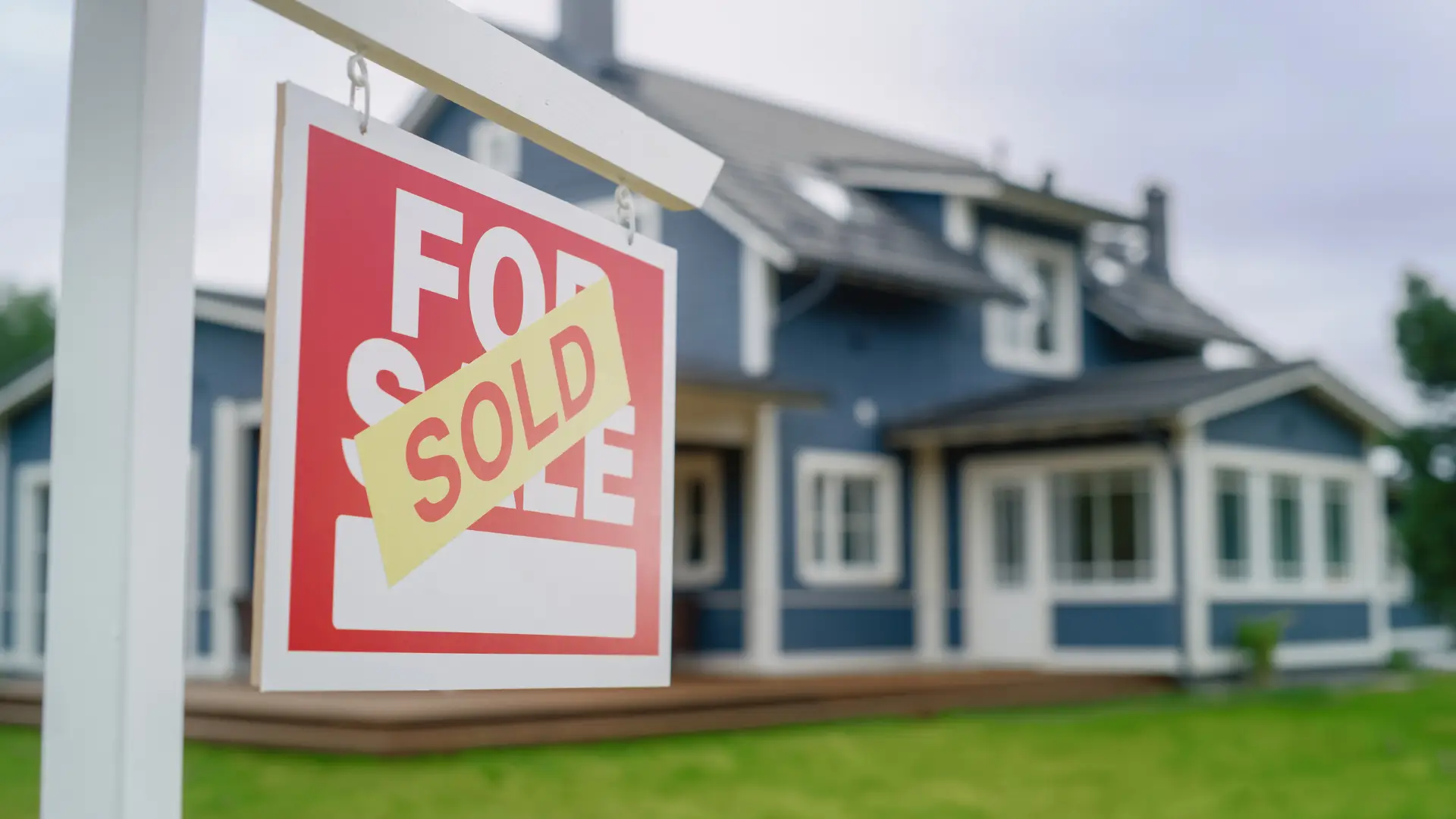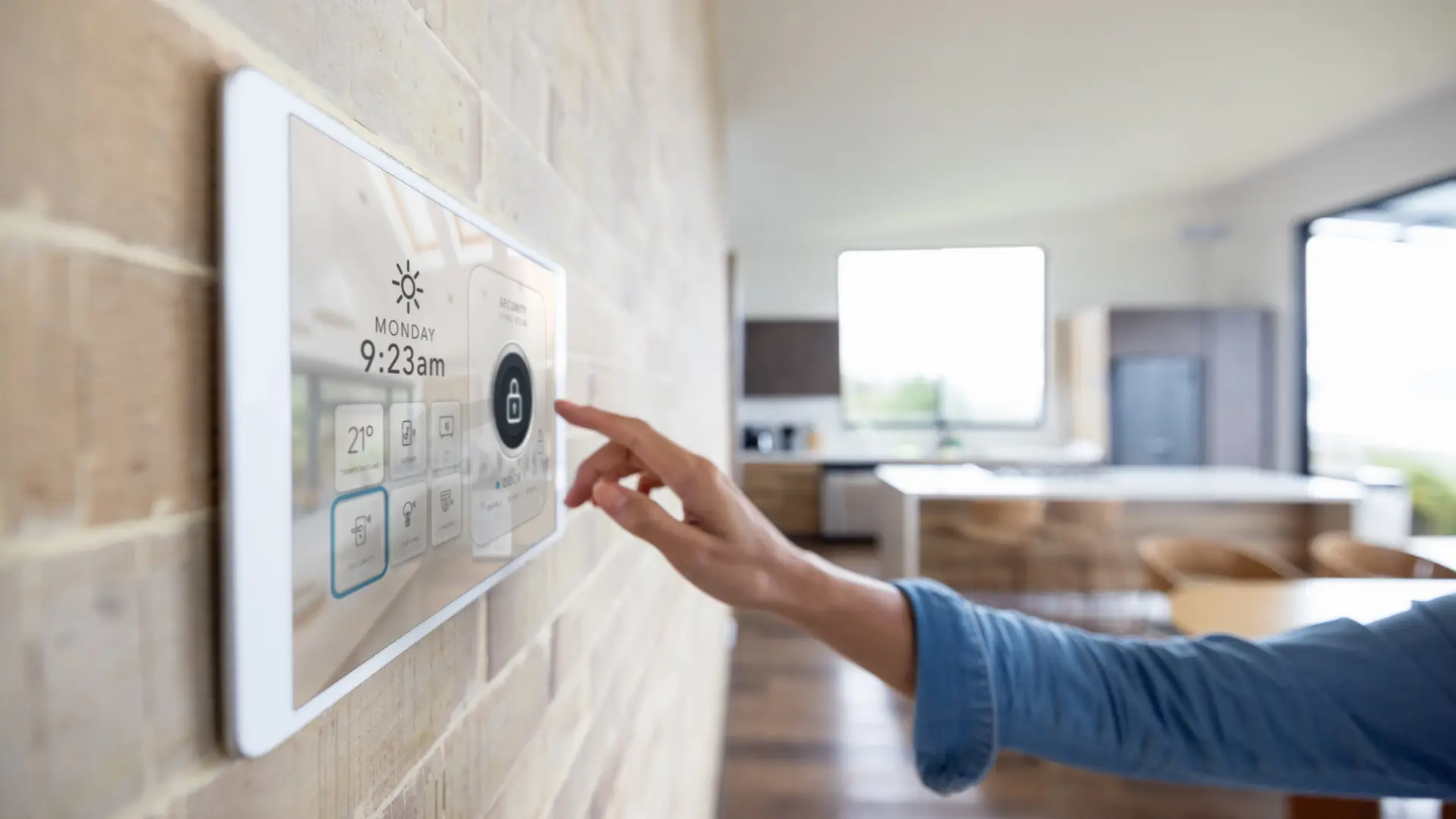7 questions to ask when buying a home

Buying a home is one of the largest, most important decisions you’ll make in your lifetime. That’s why, regardless of whether it’s your first home purchase or you’re moving into your forever home, it’s wise to ask a lot of questions. No matter the price, location, or time frame, there are numerous questions to ask when buying a home that will ensure you have a great experience.
The following seven questions can help you face your decision with confidence every step of the way.
What is my budget?
One of the important things you can do before you start home hunting is to figure out what your budget is for a home. According to Freddie Mac, you can calculate your price range by multiplying your pre-tax, annual gross income by 2.5. Think about what you’re comfortable paying and be ready to talk it over with your mortgage lender.
Next, apply for pre-approval. Work with a local lender who understands the Triangle market and can help you find the right budget for your needs. Keep in mind that your mortgage principal is just one part of your monthly payment. You’ll also need to consider added costs such as interest, property taxes, and homeowner’s insurance. Talk to your lender about these costs to get a better picture of your overall budgetary needs.

Why are the owners selling?
One of the important questions to ask when buying a home is why the owners are selling. There may be simple reasons, such as moving up, downsizing, or moving to a different location. In cases of divorce, the sellers may have to sell as part of the legal proceedings. In short, these are straightforward enough that you shouldn’t be concerned about the reasons.
However, there may be a bigger, underlying issue with a home. This is an important reason for getting a home inspection. A home inspection will uncover any major issues that may not be easy to spot on your own, like structural issues, water damage, and electrical problems. If you get to the home inspection, you’ll receive documentation that outlines work that needs to be done, and you can back out of the purchase if too much work needs to be done. You can always ask your agent to help you better understand any issues they may see and what you should know about the reasons owners are selling.
What work has been done on the home?
Sometimes owners have put work like upgrades, renovations, or repairs into the home. Some upgrades and renovations, such as a new roof or HVAC system, can be incredibly beneficial and save costs down the road. If there are new systems or other repairs and replacements that may still have warranties, make sure you request them during the sale.
Keep in mind that some work, however, may create problems down the road. For instance, during the COVID-19 pandemic, many homes sold sight unseen and many current homeowners have buyer’s remorse because of problems with the homes. Ask for the type of work that may have been done — and look into how well it was done — to avoid any surprises. If a renovation or repair was poorly executed or doesn’t meet code, it may give you negotiating power if you choose to move forward on the purchase.
What is the neighborhood like?
While the home itself is important, the location is just as important. One of the best questions to ask when buying a home is what the neighborhood has to offer. To get a sense for the neighborhood, explore the area in depth. Look for nearby amenities, schools, and community character. And ask about a homeowners association to see if there are restrictions you should know about.
You also should visit the community during different days of the week and times. Weekends may be more active for families. But evenings may be loud if you have more social people in the neighborhood. Don’t forget to look into safety, walkability, and any growth or development that may happen down the road. If you purchase a home you love in the wrong neighborhood, you may not feel it’s a good investment after all.
What is included in the purchase?
You may walk into a home to tour it and love everything you see. But that doesn’t mean you’ll get the home as-is when you sign the paperwork. When you make your offer, be sure to clarify whether things like appliances, window treatments, sheds, and even playsets are part of the purchase.
If you want to include appliances or furnishings in the purchase, talk to your agent. You can make requests and your agent will clearly communicate the request within the offer. Listings will sometimes mention that appliances are negotiable with the contract. Just keep in mind that you may have to offer more if you want to keep any appliances or amenities as part of the purchase.

What should I expect to pay out of pocket?
As you talk to your lender, make sure you’re asking not just about your loan terms, but also about the up-front costs of buying a home. You will typically offer earnest money or due diligence, which may run between $500 and $2,000. And depending upon the type of loan you’re using, you may need to have some money saved up for a down payment.
In addition, you’ll pay closing costs, which can range between two and four percent of the purchase price. Closing costs cover your appraisal, attorney fees, escrow, and more. Talk to your mortgage lender to get a better understanding of what costs may be. Knowing these out-of-pocket responsibilities ahead of time will help you avoid surprises and budget with confidence.
How long will it take to buy a home?
Every transaction is different and you should outline closing dates in the offer. Typically, a home purchase takes between 30 to 60 days due to such factors as financing delays, inspections and negotiations, or even title research. However, you may put a contingency clause, such as the sale of a different home before you can purchase the new home on which you’ve made an offer.
There may be other times where it takes longer to buy a home. For example, if you’re building a new construction home, the timeline may change. Many builders also have quick move-in options that may not require as much time. Be sure to work with an experienced real estate team who will advocate for you and who will help keep your purchase on track.
Final thoughts
Buying a home is exciting. But it also creates many questions. The good news is you don’t have to figure it all out alone. By figuring out the right questions to ask when buying a home, and doing so early and often, you can reduce your stress and make sure your purchase is right for you. And by working with knowledgeable, highly experienced real estate and lending professionals, you will be in the best position to make a smart, informed decision.
Be the First to Know
Want to get the latest from The Jim Allen Group’s trusted local experts? Subscribe to our blog, and we’ll notify you when we post something new!



